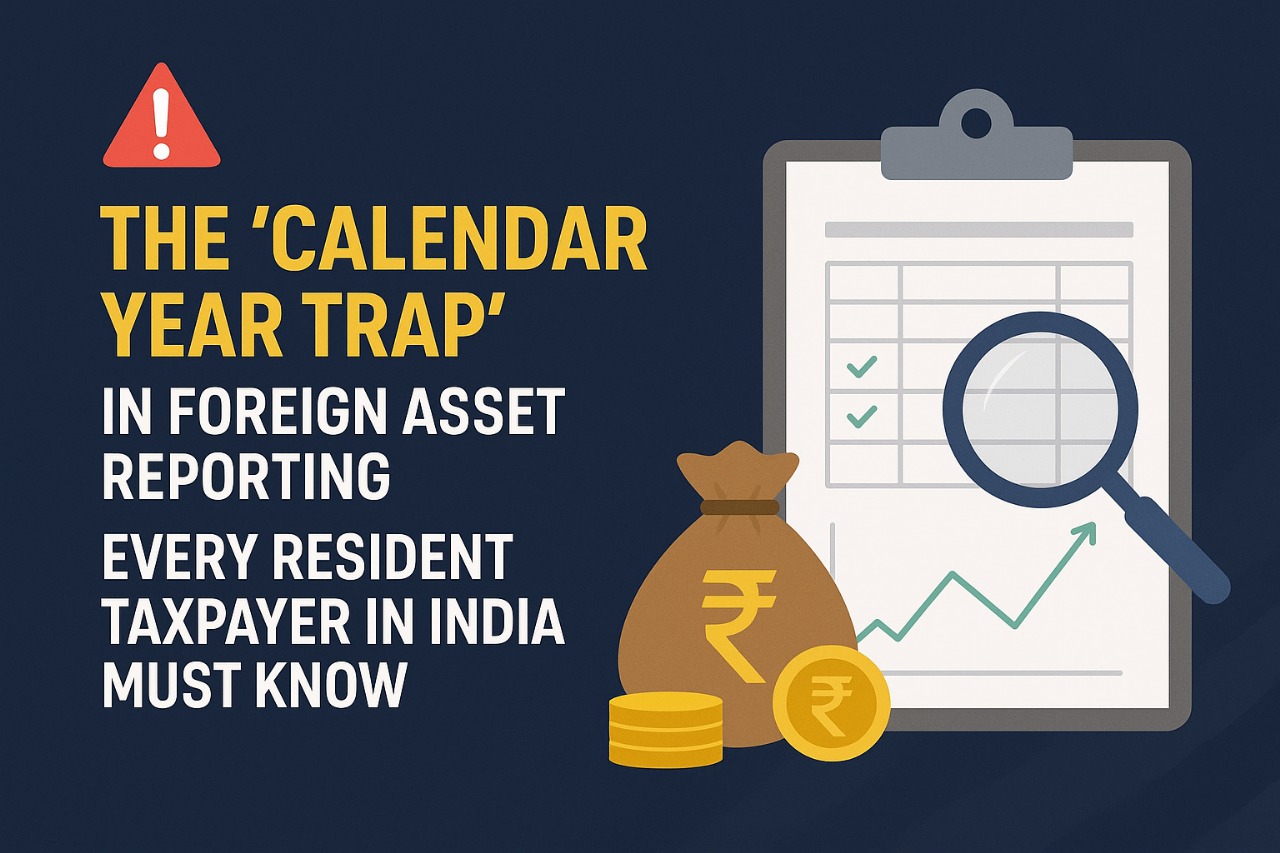 WhatsApp
WhatsApp
 Call Us
Call Us
 Email Us
Email Us
 Whatsapp Community
Whatsapp Community

At Dinesh Aarjav & Associates, we regularly guide clients on complex compliance requirements like foreign asset reporting. One of the most overlooked yet critical rules in the Income Tax Return (ITR) is the “Calendar Year Trap” in Schedule FA (Foreign Assets).
Many Resident Indians unknowingly make errors here — and with CRS & FATCA information sharing, the Income Tax Department already has details of your overseas accounts. Non-disclosure can result in Black Money Act penalties, interest, and even prosecution.
This blog explains who needs to file Schedule FA, what period to report, how to convert foreign values to INR, which assets to disclose, and how to stay compliant.
Mandatory for: Resident Indians under the Income-tax Act, 1961
Not applicable for:
If your status for the year is Resident, you must disclose all foreign assets and income in Schedule FA — even if already reported in Schedule AL (Assets & Liabilities).
Most taxpayers assume ITR disclosures follow the financial year (April–March).
However, Schedule FA follows the calendar year.
For AY 2025–26: You must report assets held from 1 January 2024 to 31 December 2024.
Example:
Tip: Always gather bank statements, investment summaries, and property details for January to December, not April to March.
When converting foreign asset values into Indian Rupees, you must use the State Bank of India’s Telegraphic Transfer (TT) Buying Rate applicable on:
Using unofficial exchange rates is non-compliant.
If you are a Resident Indian, you must disclose:
Even if the asset was sold during the year, it must still be reported if held at any point in Jan–Dec.
Even if you have disclosed an asset in Schedule AL, you must also disclose it in Schedule FA. Both schedules serve different purposes and missing either can trigger scrutiny.
Under the Black Money (Undisclosed Foreign Income and Assets) and Imposition of Tax Act, 2015:
With CRS & FATCA, the Income Tax Department already receives your foreign account details from global banks and tax authorities.
If you’ve paid taxes abroad on foreign income:
At Dinesh Aarjav & Associates, we assist clients in:
If you are a Resident Indian with any foreign bank account, investment, or income — now is the time to review your compliance for NRI Taxation.






